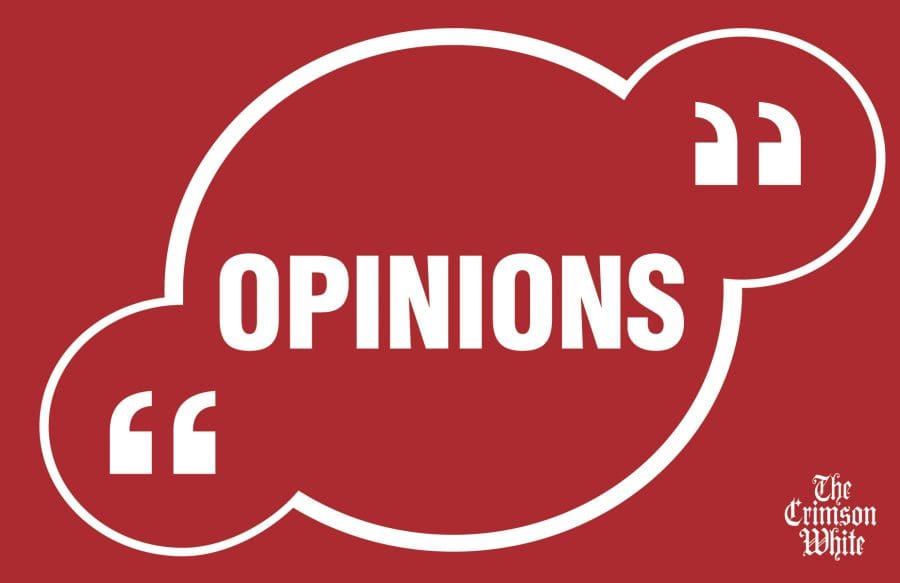Opinion | Have you heard the joke about a rapper and reality television star running for president?
Sporadic tweets, rapid mood changes and claims of a mission to save America: if this description made you think of President Donald Trump or Kanye West, well, it’s hard to say if one is more correct than the other. The enthralling antics of Trump and West captivate the news and social media. Regardless of whether you’re a fan of the “show,” these Gemini twins are inescapable.
Over the course of the 2016 election cycle, the expectations of how a President of the United States should act were shattered, and some struggled to understand what went wrong. As both nominee and President, Trump has broken almost every standard of what it meant to be “presidential.” During debates, press conferences, rallies, advertisements and, most notably, social media posts, Trump has made clear that he is not a typical politician but rather the man best known for his real estate empire and his cartoonish persona on NBC’s “The Apprentice.” He has mastered the art of the insult, ridiculing enemies by attacking people – not just their policies – and waging an open rebellion against “political correctness.”
While this was happening in the political realm (arguably for the first time), the infamous rapper Kanye West honed his own reputation with numerous parallels to Trump’s rhetorical persona. Their similarities became increasingly apparent when West announced his intention to run for President in the 2020 election. Much like they did when Trump declared, people laughed. But I urge you all to take Kanye’s candidacy seriously and to explore the impacts of this relationship between West and Trump.
Their relationship first captured the media’s attention soon after Donald Trump’s election. West requested a meeting with Trump at Trump Tower where they were surrounded by the press. A seemingly unlikely pair, West was one of the first to visit Trump in 2016. Trump spoke highly of West, claiming that they had been friends and that he viewed West as a good person. West explained on Twitter that he was meeting to talk with Trump about multicultural issues. As the two continued to publicly display their friendship, news articles began referring to their relationship as a “bromance,” and West’s visit to the White House in 2018 only strengthened this claim.
Then West tweeted that he would run for president in 2024, leaving his followers to assume that he would vote for Trump in the 2020 election. It left many in shock, then, when West officially declared on July 4 that he would be making a bid for president in 2020. He made his announcement by tweeting “We must now realize the promise of America by trusting God, unifying our vision and building our future. I am running for president of the United States! #2020VISION.”
Though West had missed the deadline for most states to appear on the ballot, the pop culture icon shared a tutorial video on Twitter showing followers how to fill in his name as a write-in candidate. As election results have been coming in, it appears that many voters did just that: Kanye has amassed over 60,000 votes nation-wide, with social media users posting their write-in votes for Kanye on Twitter. While unsuccessful this time around, Kanye is already planning for the 2024 election.
Thousands of people voted for Kanye and millions voted for Trump, raising the question of what intermingling politics and celebrities say about how we view our politicians. Do we view them as public figures or public employees?
Being a celebrity billionaire-turned-politician meant both West and Trump had established a large fan base before running for office. Using Twitter to talk directly to their audience in an informal way helps build an intimate relationship between these nouveau politicians and their fans. The two built trust with the American public through photo-ops, press conferences and social media for years, allowing them more flexibility in what they can do or say. The fan bases that both Trump and Kanye have amassed are both notorious for attacking their critics personally. Trump has used Twitter to coin nicknames for his major opponents, such as “Sleepy Joe” or “Little Marco.” If you are a part of the “Trump train,” you can even find a running list of nicknames compiled on Wikipedia to keep up with Trump’s lingo.
The similarities between Trump and West raise concerns, as does their controversial public relationship. Their association has advanced both of their objectives, whether intentionally or not. Both have an evangelical following, framing themselves as heroic and god-like. During a time of distrust with the media, politicians and even loved ones, the election results left no doubt that some Americans cling to the idea of needing to be saved.
These demagogic tendencies have made celebrities effective in politics. Despite the outcome of the 2020 election, both West and Trump have changed the societal norms of what it takes to run for president, most likely setting the precedent for future candidates. They have used their relationship to catch the attention of the media, drawing the focus away from other potential candidates and ultimately dominating the news. Most importantly, their relationship has shown that they do not need a cohesive message to be successful. Their fans follow them for their personality and are loyal to and accepting of their demagogic behavior.
Donald Trump and Kanye West have changed the formula, shifted our own standards. You could praise them as being outsiders not beholden to the so-called Washington political swamp, but you could also call them unqualified, unprepared and unwilling to recognize their awful, sweeping effect on our political system.



